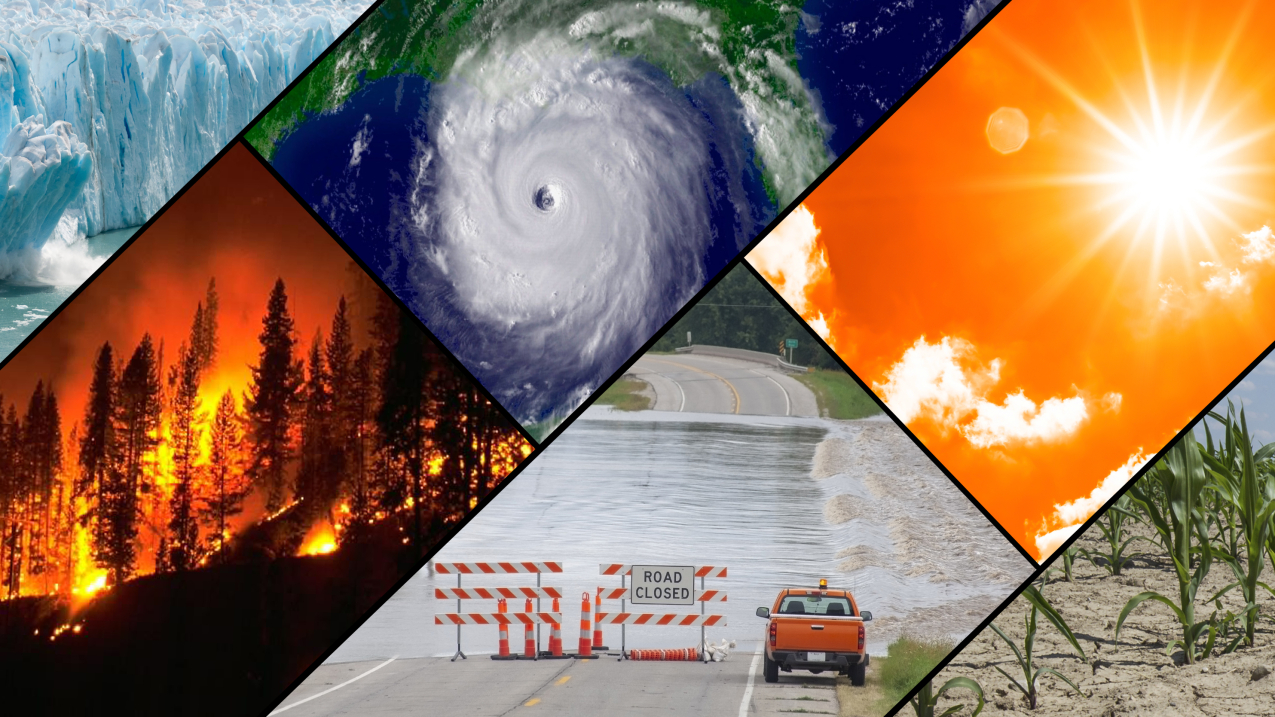UN urges rapid action to tackle climate crisis
GENEVA, March 21: (Xinhua) — A climate change report released by the United Nations (UN) on Monday called for urgent action to reduce emissions and boost climate resilience before it is too late to secure a livable sustainable future for all. In its sixth Synthesis Report, the Intergovernmental Panel on Climate Change (IPCC) said that there are multiple, feasible and effective options to reduce greenhouse gas emissions and adapt to human-caused climate change. The IPCC issues a comprehensive scientific assessment report on global climate issues every six to seven years. The previous such report was published in 2014.
It provided the scientific basis for the Paris Agreement, which commits its signatories to keep global warming “well below” two degrees Celsius above pre-industrial levels and strive for a lower limit of 1.5 degrees Celsius. The latest IPCC report, released in the Swiss tourist resort of Interlaken on Monday, makes it clear that the pace and scale of what has been done so far, as well as the current plans, are insufficient to tackle climate change. As the unprecedented scale of challenge keeps building up to meet the 1.5-degree target, which the IPCC has been highlighting since 2018, the report once again sounds the alarm that urgent action needs to be taken.

It focuses on the losses and damages that are already experienced and will continue into the future, hitting the most vulnerable people and ecosystems especially hard. According to Aditi Mukherji, one of the report’s 93 authors, “climate justice is crucial because those who have contributed least to climate change are being disproportionately affected.” “Almost half of the world’s population lives in regions that are highly vulnerable to climate change. In the last decade, deaths from floods, droughts and storms were 15 times higher in highly vulnerable regions,” Mukherji said.
Taking the right action now could result in the transformational change essential for a sustainable, equitable world, the report said. “Mainstreaming effective and equitable climate action will not only reduce losses and damages for nature and people, it will also provide wider benefits,” IPCC Chair Hoesung Lee said. The solution, the report suggested, lies in climate resilient development, including integrating measures to adapt to climate change with actions to reduce or avoid greenhouse gas emissions.
For example, access to clean energy and technologies improves health; low-carbon electrification, walking, cycling and public transport enhance air quality, improve health and employment opportunities, and also deliver equity. “The economic benefits for people’s health from air quality improvements alone would be roughly the same, or possibly even larger than the costs of reducing or avoiding emissions,” the report said. Increasing the input of capital and technology is crucial for achieving a sustainable development, it said. “There is sufficient global capital to rapidly reduce greenhouse gas emissions if existing barriers are reduced,” the report said, urging governments to reduce the barriers through public funding and clear signals to investors, while also encouraging investors, central banks and financial regulators to play their part.
“Political commitment, coordinated policies, international cooperation, ecosystem stewardship and inclusive governance are all important for effective and equitable climate action,” it noted. As climate, ecosystems and society are interconnected, the report stated that effective and equitable conservation of approximately 30 to 50 percent of the Earth’s land, freshwater and ocean will help ensure a healthy planet. In that process, urban areas offer a global-scale opportunity for sustainable development.
For instance, changes in the food sector, electricity, transport, industry, buildings and land use can reduce greenhouse gas emissions, it suggested, which can make it easier for people to lead low-carbon lifestyles, and which in turn also improve health and well-being. “A better understanding of the consequences of over-consumption can help people make more informed choices.” “Transformational changes are more likely to succeed where there is trust, where everyone works together to prioritize risk reduction, and where benefits and burdens are shared equitably,” Lee said.
प्रकाशित मिति : ७ चैत्र २०७९, मंगलवार १६:२२












